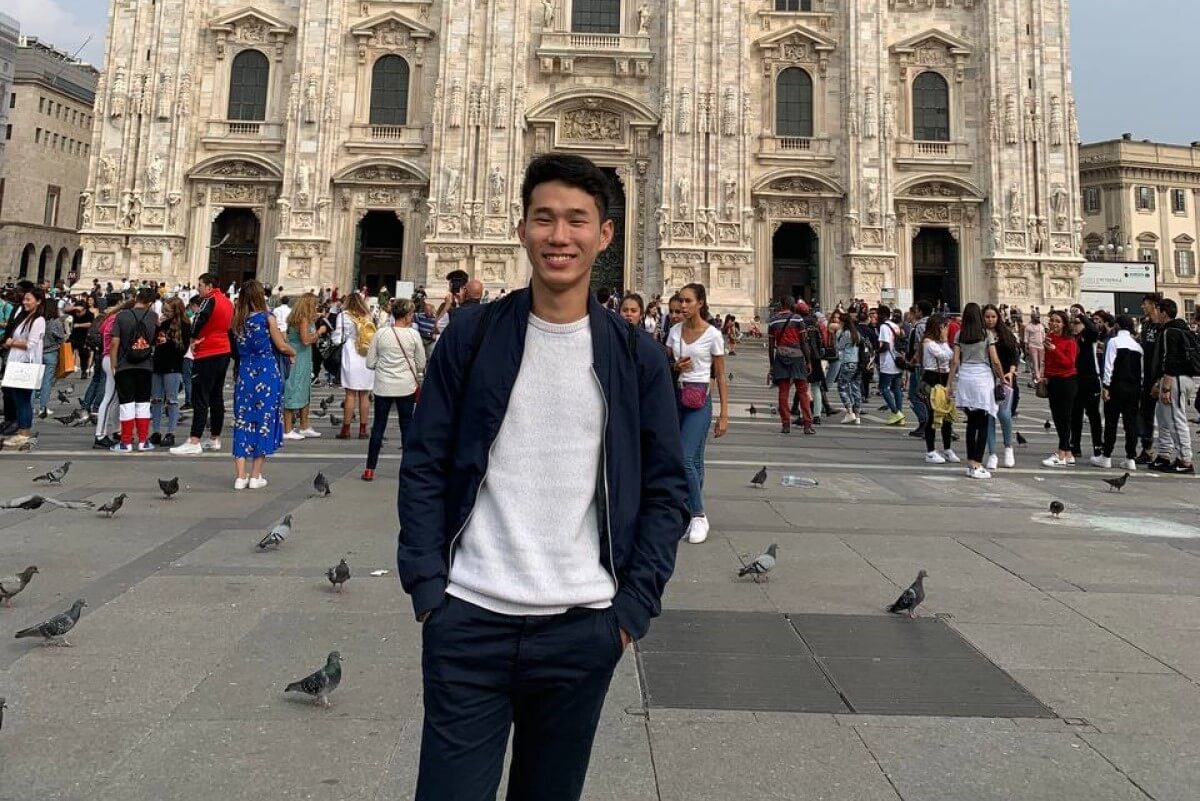
By the SMU Digital Marketing Team
Amid the rise of events that has seized our collective conscience, we have a desire to make sense of what’s happening in the world. As daunting as disruptions may be, they also present opportunities; such crises trigger the need to confront global challenges with realistic, durable, and meaningful change. And the key to unleashing positive impact? The social sciences.
Did you know that a British Council study found that professional leaders from all over the world have two things in common: a degree in the social sciences and a lot of experiences in another country? Even if being a world leader is not quite on your bucket list, a Bachelor of Social Science (BSocSc) degree allows the flexibility to direct your career growth and drive change in the global workplace.
“An education in the social sciences developed and nurtured in me, the necessary skills to reach out and explore the world,” says SMU BSocSc graduate Nicholas Chua, who majored in Politics, Law & Economics.
“While professional skills remain essential, possessing strategic and analytical skills to understand rapidly-changing situations are crucial to being a global citizen. These skills have prepared me to adapt and excel in various conditions in both professional and personal settings.”
A-levels to the SMU School of Social Sciences
Junior college students hoping to advance from A-levels to study social issues can take heart: the SMU School of Social Sciences (SOSS) offers a holistic and integrative approach to the study of social problems, and produces graduates with the versatility required to manage complexities and solve problems in the global workforce.
Besides being able to major in the main disciplines of Political Science, Psychology and Sociology, or Politics, Law and Economics, SOSS students are encouraged to take on a second major either in the Social Sciences or from other SMU Schools. Eligible students may also read a second degree programme from other Schools to equip them with an extra edge for the future.
“A JC education sets the standard for academic discipline and rigour required for any individual subject,” says Nicholas, an SMU Merit Scholarship Recipient. He completed his A-levels at Raffles Institution.
“While the subject focus was often on specific and technical areas of knowledge, the skills gained from going in-depth into each subject were transferable when studying new modules in the SOSS programme.”
Imparting transferable skill of strategic and analytical thinking
Currently a Research Analyst at Accenture Research, the research arm of the multinational professional services company, Nicholas and his team helps to shape trends and create thought leadership about the most pressing issues global organisations face. And he credits his SOSS journey to equipping him with the competencies to take on his full-time role, parlayed from a public services analyst internship at the same firm.
A first of its kind in Singapore, the Politics, Law and Economics major that Nicholas undertook is designed to groom future leaders and thinkers on global political and economic changes. It also imparts the necessary and highly transferable skill of coming up with new and innovative ideas to solve real-world problems.
“Recent geopolitical conflicts have underlined the importance of being aware and connected to current affairs beyond Singapore’s shores,” says Nicholas.
“These connections are not only opportunities to expand one’s knowledge of the world but also strengthen societal bonds across geographical borders. These bonds build shared understanding and reduce the potential for conflict and strife.”
Global exposure
Besides equipping students with the knowledge and skills to take on jobs in public service, non-government organisations or industry, BSocSc programmes also provide multiple opportunities for global exposure. Nicholas, for example, spent several weeks in Vietnam as part of an Overseas Community Service Project. Experiences like this provide students with the opportunity to make an impact in communities beyond their home ground, gain leadership skills and navigate cross-cultural challenges in the process.
In addition, he spent six months in Paris as part of an exchange programme at the Paris Institute of Political Studies, commonly referred to as Sciences Po Paris. There, he met fellow undergraduates from different backgrounds and countries, and was exposed to alternative points of view, critical thinking methods and academic rigour at “one of the most esteemed social sciences universities in the world.”
Ready for the global workplace
Living, working, and studying overseas often build cultural sensitivity and the ability to communicate effectively with people from different backgrounds, all while acquiring an in-depth global outlook — essential skills for today’s global economy.
“Being open-minded and willing to change one’s point of view is crucial in the social sciences – through a proactive desire to read up and interact with others who are more experienced,” notes Nicholas.
“New situations arise every day and conclusions evolve rapidly with different quantitative and qualitative models. Ultimately, a willingness to be engaged with global happenings and an interest in the broader society will benefit us even after graduating from SMU.”